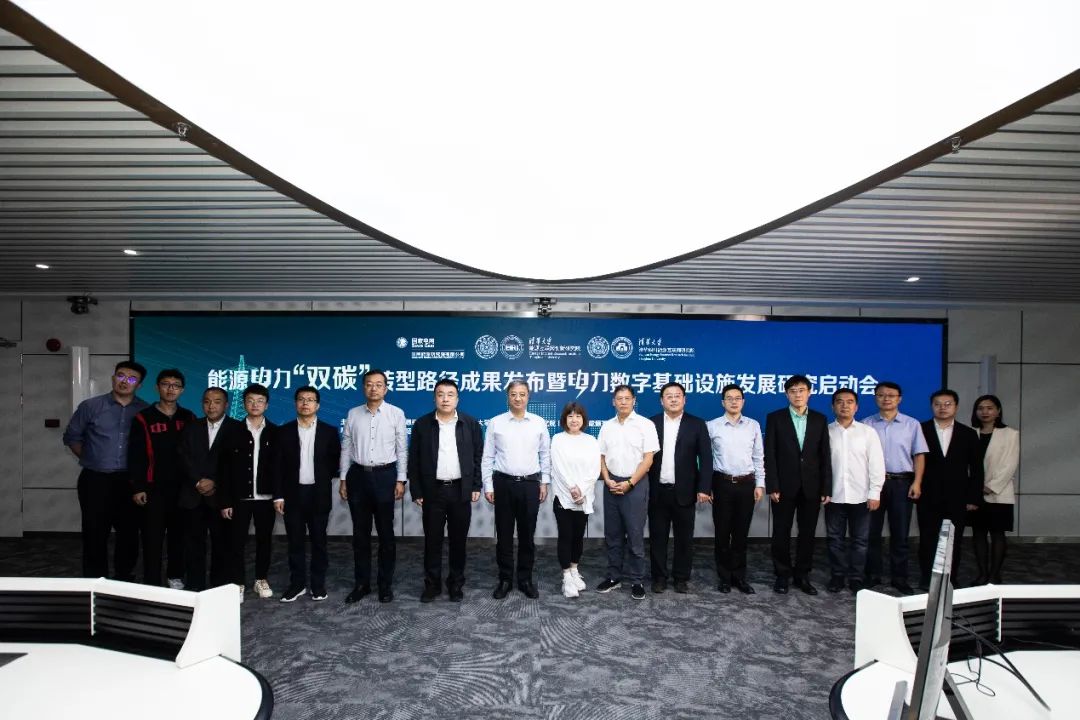The launch event of the latest research findings on “Energy and Power Transition Path towards Carbon Peaking and Carbon Neutrality” and discussion on “Power Digital Infrastructure Development” took place on September 26. It was co-organized by four institutions - State Grid Energy Research Institute Co., Ltd.; Energy Internet Research Institute of Tsinghua University; Tsinghua Sichuan Energy Internet Research Institute; and Southwest Hub of State Grid Energy and Power System Planning Research Laboratory. Xinhua Finance, the WeChat video channel of the Proceedings of the CSEE and the video channel of Energy Internet Research Institute of Tsinghua University live-streamed the event.
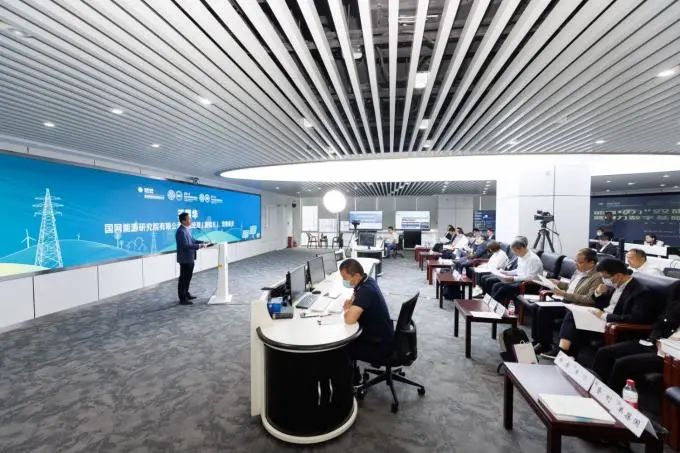
Yaohua Wang, Deputy General Manager of the State Grid Energy Research Institute Co., Ltd., spoke about the development challenge of achieving “carbon peaking and carbon neutrality” for the whole energy and power sector. He highlighted the need to balance development and security, growth and emission reduction, overall and local interests, and short-term and long-term goals, through strategic and multi-objective dynamic optimization. He also suggested coordinating the development of new and traditional energy sources - in efforts, pace and layout - following the national unity principle and taking different paths based on local conditions.
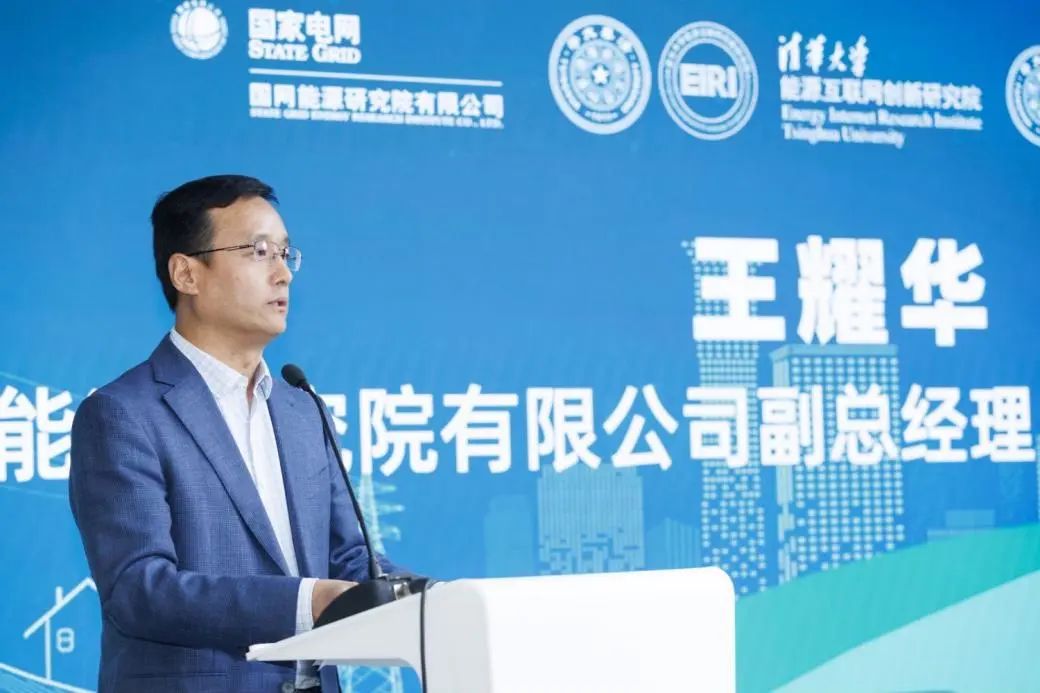
Chongqing Kang, Chair of the Department of Electrical Engineering and Applied Electronics, Director of the Energy Internet Research Institute of Tsinghua University, and Director of Tsinghua Sichuan Energy Internet Research Institute, gave a speech on the future of China’s energy and power sector. He said that planning and building a new energy system and constructing a new power system would lead to a systematic institutional reform and technological revolution in this sector. He also talked about the profound impact of digital technology on human society and the huge opportunities created by the integration of digitalisation and the “carbon peaking and carbon neutrality” strategy. He emphasized that digital technology was transforming and modernizing every aspect of the energy and power industry, creating new technologies, models and businesses, and becoming a key tool for energy transition.
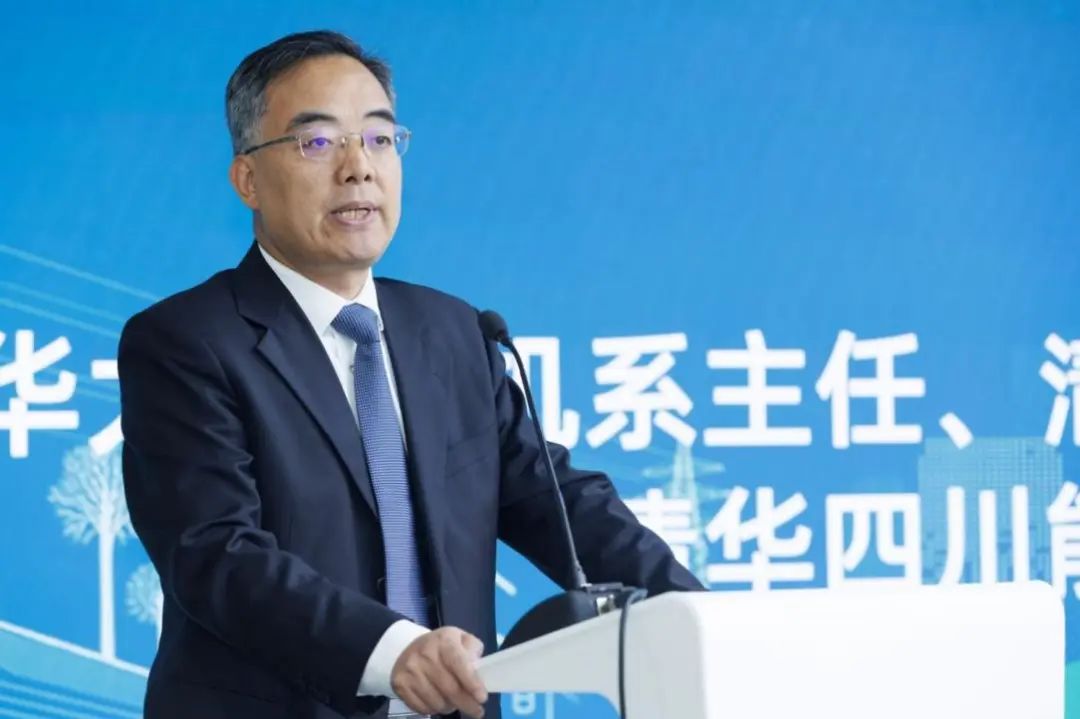
The "China Power Development Analysis Report 2023" was delivered by Fuqiang Zhang, Chief Engineer of the Energy Strategy and Planning Institute of State Grid Energy Research Institute Co., Ltd. The report updated the evaluation system with 6 indexes (safe, clean, low-carbon, economic, efficient and flexible) from last year by adding a comprehensive indicator for coordinated supply assurance and transformation. The report also discussed the current hot issues in power development, such as the mid-term evaluation of the power supply plan under the "14th Five Year Plan", the role of energy storage in enhancing renewable energy consumption and ensuring power supply, and the thematic analysis of the impact of the future "end-of-life wave" of power generation units on the power system.

Building a new energy system in Sichuan was the topic of Ruiguang Ma’s keynote speech. He is the Deputy Director of the Energy Development Research Center of the State Grid Sichuan Economic Research Institute and Southwest Hub of State Grid Energy and Power System Planning Research Laboratory. He said that the main idea was to balance the supply of energy and power and the demand for clean energy, foster the coordinated high-quality development of various clean energy sources such as water, wind, solar, hydrogen and natural gas- and enable the green and low-carbon transformation of the economy and society. He proposed three steps: first, ensure domestic supply by enhancing the stability, emergency support and resilience of normal power operation. Second, stabilize external transmission by building a hub power grid based in Sichuan to serve the southwest and the whole country, and deliver high-quality clean energy to the northwest and southwest regions; Third, promote transformation by improving the power pricing mechanism and strengthening the intra and inter-province resource allocation capacity of the power market, and achieving coordination and complementarity among multiple sources, networks and storage.
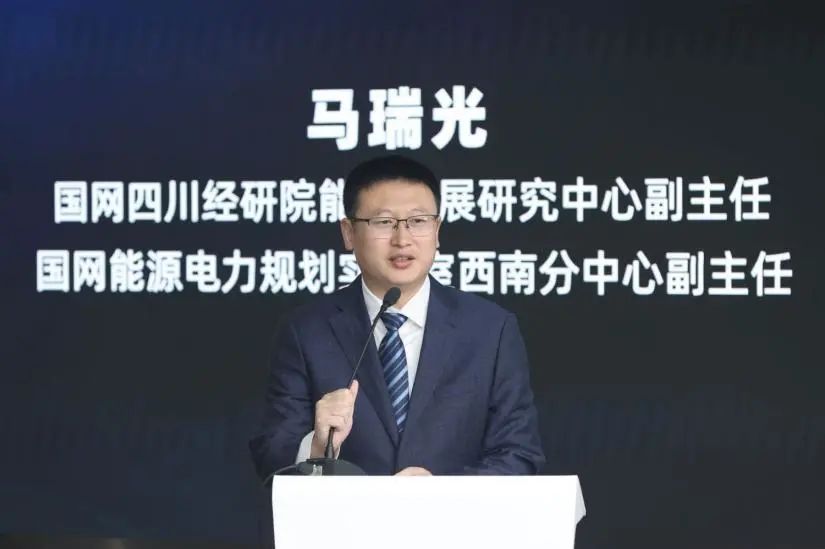
The annual report "Analysis on Carbon Peaking and Carbon Neutrality Path and Major issues in China's Energy and Power" was delivered by Bo Yuan, Director of the Power System Analysis Office of the Energy Strategy and Planning Institute of State Grid Energy Research Institute Co., Ltd., and his team members Peng Xia, Guanjun Fu, Yichun Gong, Jin Liu on behalf of the research team. The report covered strategic blueprint, implementation path, security economy and governance improvement. It systematically examined China’s energy and power transition to carbon peaking and neutrality, and major issues by reviewing China’s energy development foundation, projecting the 30/60 energy and power development scenarios and emission reduction path, detailing the specific implementation path from the perspectives of science and technology, industry, energy efficiency and supply, and focusing on how to address the major theoretical problems related to emission reduction and security, emission reduction and economic affordability, as well as how to start with the modernization of energy and power governance and the transformation of "dual control" policy to drive the "carbon peaking and carbon neutrality" path.
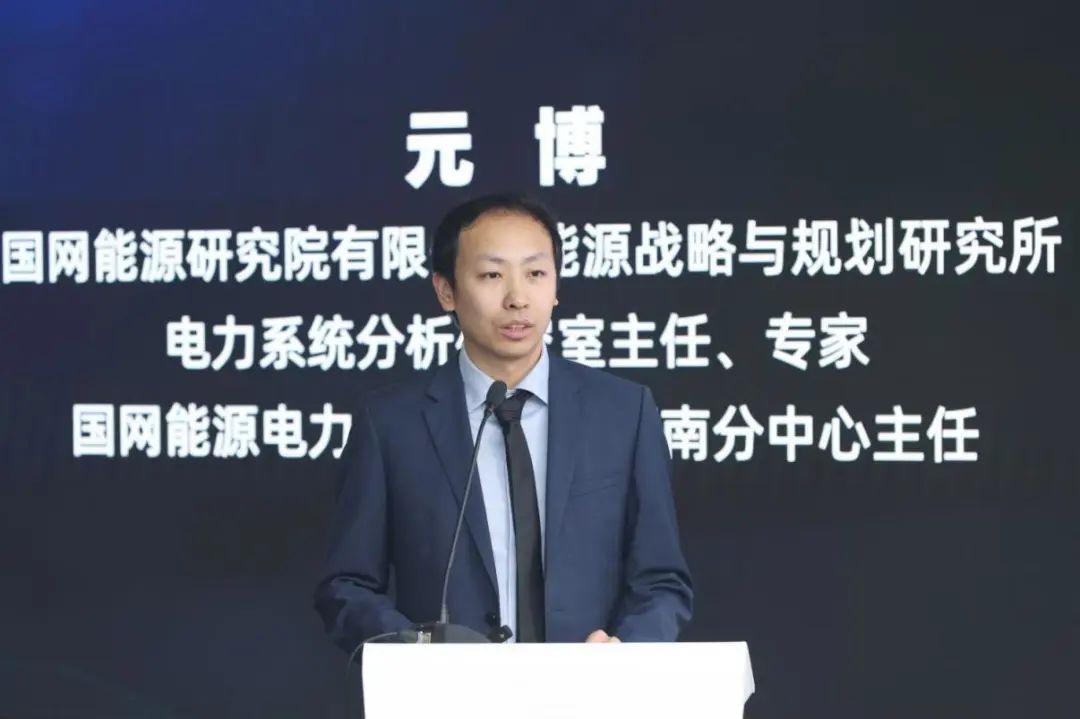
Haitao Chen, an intermediate researcher at the Energy Strategy and Planning Institute of State Grid Energy Research Institute Co., Ltd., spoke about the National Energy Strategy and Planning model (NESAP) on behalf of his team. The model grouped 153 industries in China into 104 industries and over 1,000 key technology systems. It took into account factors such as China's economic and social needs, industrial chain supply and demand, typical technical layout characteristics of industries, and resource endowments. It also detailed activities such as social and economic system, energy production, energy consumption, environmental emissions from energy processing and conversion, water use in key industries and natural carbon sinks. This enabled the scenario simulation and path selection for low-carbon energy transition at the industry and technology level under different socio-economic modes and energy policies.
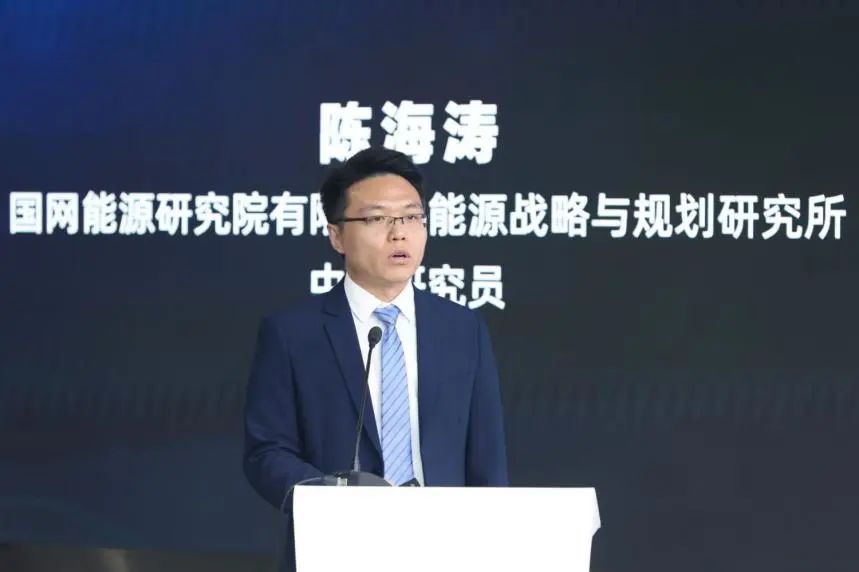
Jing Dai, Deputy Head of the Energy Governance Research Center of the Energy Internet Research Institute of Tsinghua University, introduced the “Study on the Power Digital Infrastructure Development”. The research would examine the needs of different stages of power generation, transmission, and distribution in the new power system, and combine the trend of digital technology. It would systematically identify the typical application scenarios of power digitalization, and analyse, judge and propose the characteristics and requirements of the new power system for power digital infrastructure.
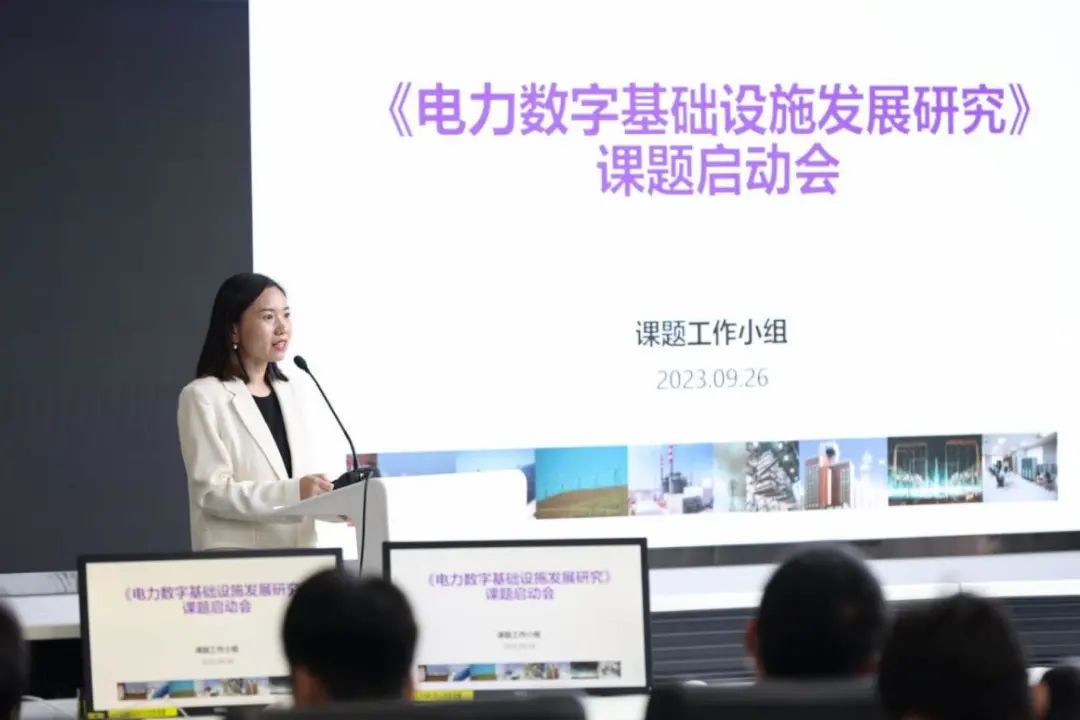
The meeting was concluded by Baoguo Shan, Deputy General Manager of State Grid Energy Research Institute Co., Ltd. He said that carbon peaking and carbon neutrality was the only path for China's modernization journey. He emphasized the huge responsibility of the energy and power industry, and urged it to collaborate with all sectors of society, follow the trend of energy and power, and be alert to new situations, issues and challenges facing the industry.
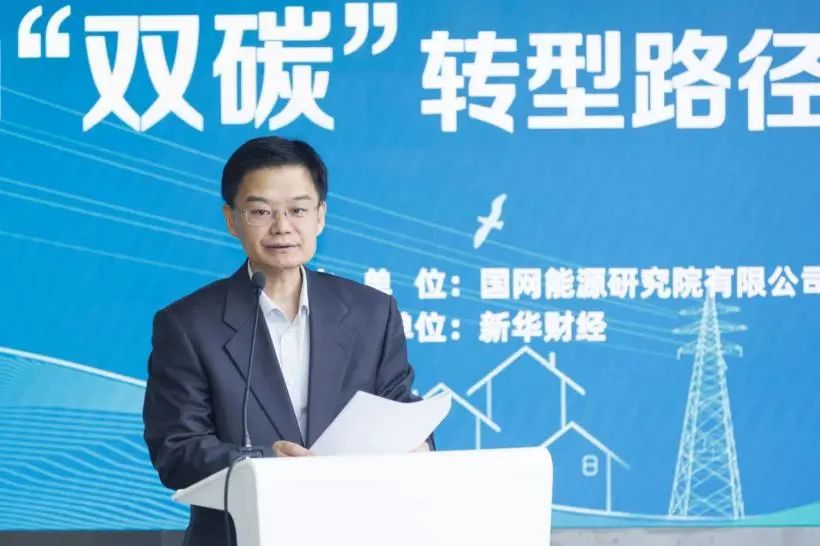
A closed-door expert discussion on the “Power Digital Infrastructure Development” followed the event. It was chaired by Wensheng Gao, Executive Deputy Director of the Energy Internet Research Institute of Tsinghua University. Representatives from different project participants spoke about their research. They were Shiyu Liu, Vice President of China Electric Power Planning & Engineering Institute, Hongxu Song, Manager of Network Security and Infrastructure Office of the Science and Technology Innovation and Digitalization Department of China Datang Group Co., Ltd., Dangpei Ren, Deputy Director of the Digital Application Technology Research Center of SPIC Central Research Institute, Xinrong Yan, General Manager of Huadian Electric Power Research Institute Co., Ltd., Yong Sun, Director of the Power Plant Operation and Maintenance Center of the Science and Technology Research Institute of China Three Gorges Corporation, Xin Zhang, a technical expert of CSG EHV Power Transmission Company, Haifeng Wang, a senior expert of NARI Group Co., Ltd., Li Guo, a professor of the School of Electrical and Information Engineering of Tianjin University, Ming Wu, Technology R&D Director of the State Grid Shanghai Energy Internet Research Institute Co., Ltd., Gang Lu, Director of the Energy Strategy and Planning Institute of State Grid Energy Research Institute Co., Ltd., Wen Wang, Deputy General Manager of the State Grid Smart Internet of Vehicles Co., Ltd., Zhe Kang, an ICT expert of Huawei Technologies Co., Ltd., Ershun Du, Assistant Researcher at the Laboratory of Low Carbon Energy of Tsinghua University, and Xiao Zhang, Senior Director of Network Security Department of State Grid Dispatching Center. They discussed topics such as power digitalization practice and technical requirements for power digital infrastructure. Jia Liu, Deputy Director of the Third Special Division of MIIT Industry Development and Promotion Center, concluded the discussion by thanking the participating units for their support, and expressing her hopes that the research findings could promote the development of digital infrastructure for power and energy. Zhaohua Zhang, special commissioner of the Third Special Division of MIIT Industry Development and Promotion Center, and Gang Chen, Deputy General Manager of NARI Group and other leading experts also joined the discussion.
